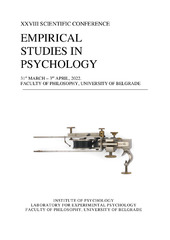Prikaz osnovnih podataka o dokumentu
REASON4HEALTH: Rationale and impact
| dc.creator | Žeželj, Iris | |
| dc.creator | Knežević, Goran | |
| dc.creator | Opačić, Goran | |
| dc.creator | Lazarević, Ljiljana B. | |
| dc.creator | Purić, Danka | |
| dc.creator | Branković, Marija | |
| dc.creator | Zupan, Zorana | |
| dc.creator | Teovanović, Predrag | |
| dc.creator | Živanović, Marko | |
| dc.creator | Stanković, Sanda | |
| dc.creator | Lazić, Aleksandra | |
| dc.creator | Lukić, Petar | |
| dc.creator | Ninković, Milica | |
| dc.creator | Petrović, Marija | |
| dc.date.accessioned | 2023-10-09T13:11:51Z | |
| dc.date.available | 2023-10-09T13:11:51Z | |
| dc.date.issued | 2022 | |
| dc.identifier.isbn | 978-86-6427-199-8 | |
| dc.identifier.uri | http://empirijskaistrazivanja.org/wp-content/uploads/2022/04/KNJIGA-REZIMEA-2022_FIN-sa-isbn_bez_linija-1.pdf | |
| dc.identifier.uri | http://reff.f.bg.ac.rs/handle/123456789/4929 | |
| dc.description.abstract | Non-adherence to medical recommendations (NAR) leads to increasing mortality/disease rates and raises the costs of treatments, thus it is a burden on the healthcare system. Typically viewed as harmless, the use of traditional/complementary/alternative medicine (TM/CAM) can lead to adverse health events, but also to avoidance of official treatment or undesirable interaction with it. Thus, there is an increasing call in the medical community to promote evidence-based use of TM/CAM and adherence to official advice; understanding why consumers opt for questionable health practices can contribute to this call. We put forward a comprehensive program to study the psychological roots of these two broad categories of questionable health practices. The program offers a framework for concepts from cognitive, personality, social, and health psychology. We propose that an irrational mindset (a system of irrational thinking and beliefs), rooted in basic psychological dispositions (personality, thinking styles) makes certain consumers susceptible to NAR and TM/CAM practices. We plan to: a. explore the media environment the consumers are exposed to (e.g. predatory practices in advertising TM/CAM), b. identify the large spectrum of NAR and TM/CAM typical for the local cultural context, c. test whether irrational beliefs of very different content really form a mindset (how they are interrelated), d. measure the prevalence of NAR and TM/CAM and relate them to irrational mindset and further to personality traits, and e. test whether the TM/CAM proneness can be affected by manipulating irrational beliefs. The results will be useful to stakeholders in different ways: information on the prevalence of TM/CAM and NAR in Serbia is useful by itself, but identifying their underlying psychological mechanisms will help in understanding the most vulnerable portions of the population. In addition, we will provide useful input for designing interventions that will support consumers in making rational health decisions. | sr |
| dc.language.iso | en | sr |
| dc.relation | info:eu-repo/grantAgreement/ScienceFundRS/Ideje/7739597/RS// | sr |
| dc.rights | openAccess | sr |
| dc.rights.uri | https://creativecommons.org/licenses/by/4.0/ | |
| dc.source | Book of abstracts - XXVIII scientific conference Empirical Studies in Psychology | sr |
| dc.subject | health behaviors | sr |
| dc.subject | evidence-based health decisions | sr |
| dc.subject | adherence to medical recommendations | sr |
| dc.subject | traditional/complementary medicine | sr |
| dc.subject | irrational mindset | sr |
| dc.subject | individual differences in personality/thinking styles | sr |
| dc.title | REASON4HEALTH: Rationale and impact | sr |
| dc.type | conferenceObject | sr |
| dc.rights.license | BY | sr |
| dc.citation.spage | 26 | |
| dc.identifier.fulltext | http://reff.f.bg.ac.rs/bitstream/id/12061/bitstream_12061.pdf | |
| dc.identifier.rcub | https://hdl.handle.net/21.15107/rcub_reff_4929 | |
| dc.type.version | publishedVersion | sr |

